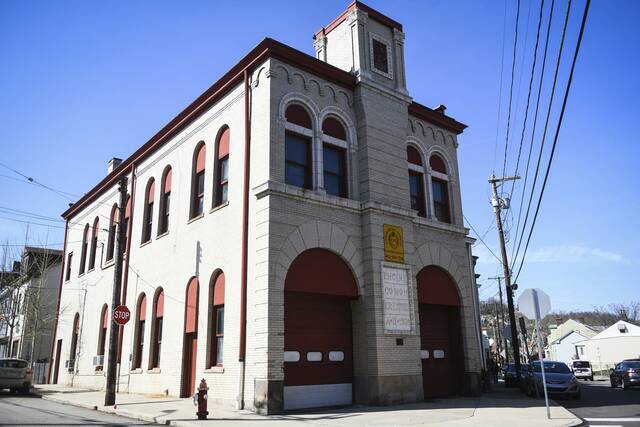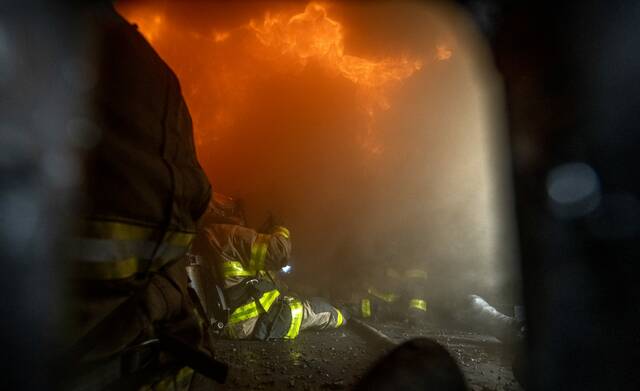Pittsburgh City Council on Monday debated a proposal to replace all of the city’s streetlights with LEDs — a measure proponents say will cut costs and help the environment, despite concerns that they could be unreliable and unpopular.
The plan calls for a $16 million revamp of the city’s 35,000 overhead streetlights. City officials proposed a contract with The Efficiency Network, a subsidiary of Duquesne Light Holdings, that would involve replacing the lights with LEDs, using local labor and conducting a survey regarding plans to install more streetlights in neighborhoods where there are few or none.
The project could cut energy costs by $1 million per year, Mayor Bill Peduto’s office has said. The new lights are touted as more durable and energy efficient, potentially reducing energy consumption by up to 50%.
Councilwoman Deb Gross said, however, that the city is currently in a fixed contract with Duquesne Light, meaning they pay a set amount for the streetlights, rather than paying a bill based on energy use. The plan is to renegotiate the contract based on the new LED fixtures, according to Angie Martinez, senior ROW manager for the Department of Public Works.
Gross said she had “misgivings” about the contract with TEN, which called for the company to help the city negotiate a new price with Duquesne Light, their sister company.
“How is that advantageous to the taxpayers?”, she asked, voicing concerns that TEN would would be “sitting on both sides of the table.”
TEN did not return several requests for comment on the matter.
Gross also highlighted complaints about LED lights installed by TEN in other cities. In Cleveland, she said, there were complaints of major problems after LED lights were installed, including strobing and blackouts. In Detroit, she said, lights went out and needed to be replaced.
“My point here is that this is still unreliable technology and that’s concerning,” she said.
Martinez said the “project management goal” in Pittsburgh was different than that used in Cleveland, and pointed out that the city could opt to use a different manufacturer for the lights, since TEN does not specify a specific brand the city must use. She also said LED technology has improved greatly, even within the last few years.
There are approximately 4,000 LED streetlights already in Pittsburgh. Under the proposal, they, too, would be replaced with newer lights, Martinez said.
But those LED streetlights have already gotten complaints, Gross said.
“Many of them were removed because people just hated them,” she said, citing a specific example of one LED streetlight that began to strobe and was replaced by a non-LED streetlight.
LED lights, she said, tend to be whiter and brighter, causing glare and night vision problems for some drivers or pedestrians.
The LED lights the city is proposing wouldn’t be as harsh and would utilize a warmer color tone, said Kim Lucas, DOMI’s acting director. They would also comply with new dark skies initiatives, she said.
Currently, the city spends about $750,000 in maintenance on streetlights annually, on top of a $2.5 million bill for their energy consumption.
“We expect there to be cost savings” in both of those categories, Lucas said.
Councilman Anthony Coghill, who had also previously voiced concerns about the project, questioned the amount of complaints LED lights have generated and the upfront costs, which are higher than those of conventional streetlights, but supported the measure.
“We expect there to be cost savings” in both energy bills and maintenance expenses, Lucas said.
“I feel like this is ultimately a good thing,” Coghill said.
Gross was the lone vote opposing the project.
“I do appreciate that the goal is to lower energy costs, but that is contingent on LEDs not failing” and a renegotiation of the city’s contract with Duquesne Light, she said. “It still seems like there’s a lot of if’s there.”
All other councilmembers in attendance voted to advance the proposal, which could be up for a final vote as early as next week.
Council members Theresa Kail-Smith and Corey O’Connor were not at the meeting Monday.
If approved, the project is slated to start in the spring and could take two and a half years to complete. DOMI would prioritize which parts of the city were converted first, with input from TEN, Lucas said.








